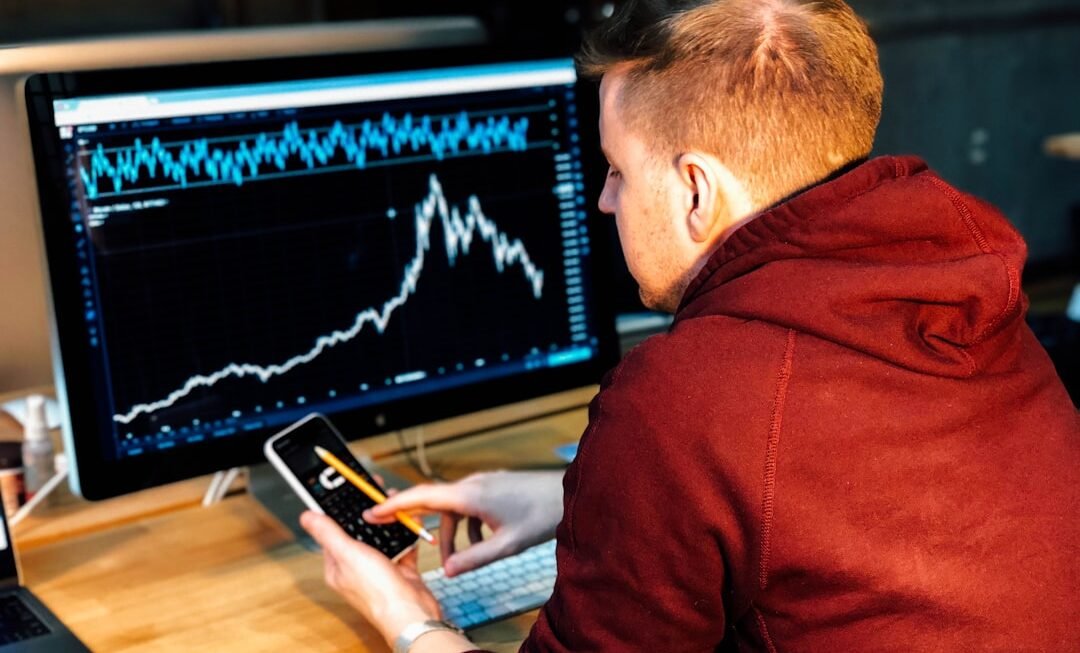Social and copy trading have emerged as transformative forces in the financial markets, reshaping how individuals engage with trading and investing. At its core, social trading allows traders to share their strategies, insights, and experiences within a community, fostering an environment of collaboration and learning. This approach democratizes access to trading knowledge, enabling novice investors to benefit from the expertise of seasoned traders.
Copy trading, a subset of social trading, takes this concept a step further by allowing individuals to automatically replicate the trades of successful traders in real-time. This not only simplifies the trading process for beginners but also provides a unique opportunity for experienced traders to showcase their skills and earn additional income through follower commissions. The rise of social and copy trading platforms can be attributed to several factors, including advancements in technology, the proliferation of social media, and a growing desire for community engagement in financial markets.
As traditional barriers to entry in trading have diminished, more individuals are seeking ways to participate in the markets without extensive knowledge or experience. Social trading platforms have capitalized on this trend by creating user-friendly interfaces that facilitate interaction among traders, allowing them to share insights, discuss market trends, and collaborate on strategies. This shift towards a more communal approach to trading not only enhances the overall trading experience but also contributes to a more informed and engaged investor base.
Key Takeaways
- Social and copy trading allows individuals to follow and replicate the trading strategies of experienced traders.
- Building a community-oriented trading experience fosters collaboration and knowledge sharing among traders.
- Transparent performance metrics for traders help investors make informed decisions about who to follow and copy.
- Social trading plays a key role in fostering collaboration and creating a supportive trading community.
- Copy trading serves as a valuable tool for learning and sharing trading strategies among community members.
Building a Community-Oriented Trading Experience
Creating a community-oriented trading experience is essential for fostering engagement and collaboration among traders. Social trading platforms are designed to facilitate interaction through features such as forums, chat rooms, and social feeds where users can post updates about their trades, share market analyses, and discuss strategies. These interactive elements encourage users to connect with one another, share their successes and failures, and learn from each other’s experiences.
By cultivating a sense of belonging within the trading community, platforms can enhance user retention and satisfaction. Moreover, community-oriented trading experiences often include educational resources that empower users to improve their trading skills. Webinars, tutorials, and articles authored by experienced traders can provide valuable insights into various trading strategies and market dynamics.
For instance, a platform might host weekly webinars where successful traders share their approaches to risk management or technical analysis. This not only enriches the knowledge base of the community but also encourages less experienced traders to ask questions and engage in discussions. By prioritizing education and collaboration, social trading platforms can create an environment where all members feel valued and motivated to contribute.
Transparent Performance Metrics for Traders
Transparency in performance metrics is crucial for building trust within the social trading community. Traders need access to reliable data that reflects the performance of those they may consider copying. This includes not only overall returns but also metrics such as drawdown percentages, win rates, and risk-adjusted returns.
By providing comprehensive performance data, platforms enable users to make informed decisions about which traders to follow or copy. For example, a trader with a high win rate but significant drawdowns may not be as appealing as one with consistent returns and lower risk exposure. Furthermore, transparency extends beyond just performance metrics; it also encompasses the methodologies behind those metrics.
Traders should be encouraged to share their strategies openly, explaining how they arrive at their trading decisions. This level of transparency not only helps potential followers understand the rationale behind a trader’s actions but also fosters accountability among traders themselves. When traders know that their performance is being scrutinized by the community, they are more likely to adhere to disciplined trading practices and continuously refine their strategies.
The Role of Social Trading in Fostering Collaboration
Social trading plays a pivotal role in fostering collaboration among traders by breaking down traditional barriers that often isolate individual investors. In conventional trading environments, traders typically operate independently, relying solely on their research and analysis. However, social trading platforms encourage users to collaborate by sharing insights and strategies in real-time.
This collaborative spirit can lead to the development of innovative trading strategies that may not have emerged in isolation. For instance, a group of traders might come together on a social trading platform to analyze a particular stock or market trend. By pooling their knowledge and perspectives, they can identify opportunities that may have gone unnoticed by individual traders.
Additionally, collaboration can extend beyond mere discussions; traders can form groups or teams where they collectively develop strategies or even engage in joint trading activities. This sense of camaraderie not only enhances the overall trading experience but also creates a supportive environment where traders can learn from one another’s successes and setbacks.
Copy Trading: A Tool for Learning and Sharing Strategies
Copy trading serves as an invaluable tool for both novice and experienced traders looking to learn from one another while sharing effective strategies. For beginners, the ability to automatically replicate the trades of successful traders provides a practical way to gain exposure to the markets without needing extensive knowledge or experience. By observing how seasoned traders navigate different market conditions, novices can gradually develop their understanding of various strategies and techniques.
On the other hand, experienced traders benefit from copy trading by gaining followers who replicate their trades. This not only provides an additional income stream through follower commissions but also incentivizes traders to maintain high performance levels. Knowing that others are relying on their expertise encourages seasoned traders to refine their strategies continually and engage with their followers through updates and insights.
This reciprocal relationship between novice and experienced traders creates a dynamic learning environment where knowledge is shared freely, ultimately benefiting the entire community.
Leveraging Social Trading for Market Insights
Social trading platforms offer unique opportunities for leveraging collective market insights that can enhance individual trading decisions. By tapping into the collective wisdom of a diverse group of traders, users can gain access to real-time analyses and opinions on market trends that may not be readily available through traditional research methods. For example, if a significant economic event is anticipated—such as an interest rate decision by a central bank—traders on social platforms can share their predictions and analyses, providing valuable context for those looking to make informed decisions.
Moreover, sentiment analysis derived from social trading interactions can serve as an additional layer of insight for traders. By monitoring discussions around specific assets or market conditions, platforms can gauge overall sentiment—whether bullish or bearish—among their user base. This information can be particularly useful for identifying potential market reversals or confirming existing trends.
For instance, if a majority of traders express optimism about a particular stock’s future performance based on recent earnings reports, this collective sentiment may influence other traders’ decisions to enter or exit positions.
The Impact of Community-Oriented Trading on Investor Confidence
The rise of community-oriented trading has had a profound impact on investor confidence across various demographics. For novice investors who may feel intimidated by the complexities of financial markets, being part of a supportive community can significantly boost their confidence levels. Engaging with experienced traders who are willing to share their knowledge creates an environment where beginners feel empowered to ask questions and seek guidance without fear of judgment.
Additionally, transparency in performance metrics fosters trust among community members. When traders can see verifiable results from those they choose to follow or copy, it instills confidence in their decision-making process. This trust is further reinforced when successful traders actively engage with their followers by providing updates on their trades and sharing insights into their strategies.
As confidence grows within the community, it encourages more individuals to participate actively in trading activities rather than remaining passive observers.
Future Trends in Social and Copy Trading Platforms
As technology continues to evolve, so too will the landscape of social and copy trading platforms. One notable trend is the integration of artificial intelligence (AI) and machine learning algorithms into these platforms. By analyzing vast amounts of data from user interactions and market movements, AI can provide personalized recommendations for users based on their trading preferences and risk tolerance.
This level of customization could enhance user experiences by offering tailored insights that align with individual goals. Another emerging trend is the incorporation of gamification elements into social trading platforms. By introducing features such as leaderboards, achievement badges, and rewards for active participation, platforms can create a more engaging environment that motivates users to improve their skills while fostering healthy competition among traders.
This gamified approach not only enhances user retention but also encourages continuous learning as traders strive to climb the ranks within the community. Furthermore, as regulatory frameworks around social trading evolve globally, platforms will need to adapt accordingly while ensuring compliance with local laws. This may lead to increased transparency requirements regarding performance metrics and risk disclosures for both traders and investors alike.
As these trends unfold, social and copy trading platforms will continue to play a pivotal role in shaping the future of investing by promoting collaboration, education, and informed decision-making among diverse trader communities.












